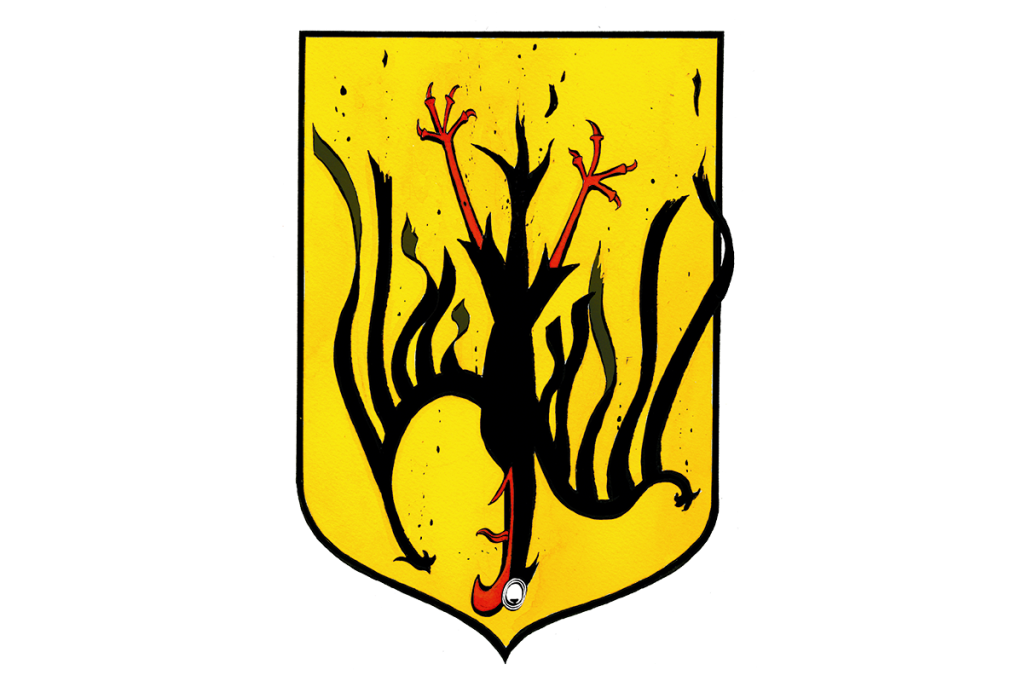The notion that closer trade connections with the West will necessarily set less enlightened nations on a course toward prosperity and liberty is nonsense, but convenient nonsense. Germans have a phrase for it — Wandel durch Handel, change through trade — often given as a justification for their business dealings with Russia and China. Unfortunately, the change they triggered was in Germany. In one case it has been for the worse; in the other it appears to be headed that way.
To start with Russia, it’s true that Germany’s ultimately disastrous dependency on natural gas from the east has its origins in the Ostpolitik years: by 1989 the Soviets were supplying West Germany with around a third of its gas. But the manner in which Angela Merkel and her immediate predecessor Gerhard Schröder handled that legacy revealed a colossal failure in their geopolitical thinking, and, in Schröder’s instance, quite possibly something worse.
Schröder, of the center-left SDP, was an advocate of a strategic partnership between Russia and Germany. That was not quite as sinister or naive as it now seems. The Vladimir Putin of the early aughts was not, on the surface, the Putin of Bucha; nevertheless the route of the proposed Nord Stream pipelines conveyed a warning signal that was ignored in Berlin. Nord Stream would pipe Russian gas directly into Germany without having to pass through awkward countries such as Ukraine, Poland or any of the three Baltic states. It was an arrangement that, to some — especially in Eastern Europe, where people know a bit about Russia — conjured up memories of Molotov and Ribbentrop redrawing the map. Too bad. The project was approved just before Schröder left office in 2005. Shortly thereafter, he accepted the first in a series of increasingly senior jobs in the Russian oil sector.
Not much changed after Merkel took over, despite the fact that Putin was soon declaring his hostility to NATO, the US and the post-Soviet settlement. In 2008 Russia provoked a war with Georgia, something that Merkel, mincing no words, described as “not appropriate.” Evidently still “appropriate,” Nord Stream was completed — and the gas began to flow in November 2011. Business as usual then. And to underline that point, the same year Germany and Russia agreed on the construction of Nord Stream 2, a second pair of pipelines to run parallel to the first.
Russia’s land grab in Ukraine in 2014 failed to persuade Berlin to bring a halt to Nord Stream 2. Instead, Germany and France brokered the Minsk agreements of 2014-15, the second of which established an unstable armistice in the Donbas, while leaving the territory seized by Russia or its “separatist” proxies under Moscow’s control. Merkel now claims that Minsk was a cunning plan to buy Ukraine time to strengthen its defenses.
The reality was grubbier. Some limited sanctions aside, Merkel wanted to put the unpleasantness in Ukraine behind her. After all, Russia was an attractive export market and its deceptively cheap gas not only powered much of the German economy but was also meant to act as a bridge fuel to help Germany manage its deep green, deeply nuts energy transition — the Energiewende — away from nuclear power and, starting with the abandonment of coal, toward the sunlit, windswept uplands of a carbon-free future.
Moreover, at the time Merkel was governing in coalition with the left-of-center SPD, a party known for its suspicion of Putin’s Russia, something less remarkable than it should be. Germany’s political commitment to the alliance that reunited it has long been diluted by pacifism, neutralism, a hard-to-explain kind of Russophilia, mutations of Ostpolitik and anti-Americanism.
Construction work on Nord Stream 2 commenced in 2018. Once in operation, its pipelines could, if Moscow felt inclined, be used to ensure that Russia could cut off the gas it sent to Eastern Europe while keeping Germany fully supplied. Not only that, it would also increase Germany’s alarming reliance on Russian gas (which accounted for over half of German gas imports in 2021) adding to a dependency made even more dangerous by the way the Energiewende had left Germany with not much of a plan B (for example, Germany did not have a single facility for the import of LNG) should Russia try to use its hold over Germany’s gas supply to put pressure on Berlin, a contingency that was either already influencing German foreign policy or which, to pick another unpalatable explanation, the country’s leadership had dismissed as an impossibility.
Under the circumstances, Putin might well have believed that Berlin would act as a brake on the Western response to an invasion of Ukraine. If that belief contributed to his decision to proceed, the cost of Germany’s addiction to Russian gas goes far beyond money.
As it is, Germany has rallied behind Ukraine, generously if sometimes only after painful hesitation. With the assistance of a relatively warm winter (so far), voluntary cutbacks on energy consumption, the expenditure of nearly $500 billion on relief measures and a costly scramble for alternative sources of energy, the country is (so far) muddling through better than once expected. Germany is also building floating LNG import facilities at an impressive pace, but, by themselves, they will not be enough to relieve the country’s energy crunch, especially next winter. Fixing the damage caused by the failure of Berlin’s Russian gas gamble will take more than that, and any solution will take time.
Despite government help, German energy costs, long elevated by the Energiewende, will remain higher than they would have been without the gas shortage, increasing the burden on the country’s vital and energy-intensive industrial sector (which represents over 20 percent of GDP). Some major companies have reined in their production. A number will locate more of their future operations in countries where energy is less expensive.
Adding injury to injury, growing competition within the Chinese market makes this a particularly bad time for German industry to lose some of its edge. If “cheap” Russian gas was one pillar of what passed for Merkel’s economic strategy, another was opening up the Chinese market for German products ranging from cars to chemicals to the components and capital goods China needed to upgrade its manufacturing sector. That China was a one-party state was not an obstacle. The magic of Wandel durch Handel would kick in, and an increasingly prosperous China would move ever closer to democracy. As with Russia, that’s not actually how the politics worked out.
What did take place was a dramatic expansion in Sino-German trade. By 2021 China had become Germany’s largest trading partner. China accounted for about 3.4 percent of imports into Germany in 2000. That had risen to 12.4 percent in the first half of last year. In 2000 about 1 percent of German exports went to China, a figure that peaked at about 7.5 percent in 2021, before starting to turn down. Some of that decline was due to China’s Covid regime, but anecdata suggests that Chinese buyers have been switching from German to locally made products. Chinese companies have used imported capital goods to create a manufacturing base capable of making higher-value-added products of a type previously beyond their capabilities, opening up new markets in which they are now competing, first domestically, then internationally with, among others, German businesses.
We’ll see how much that pattern repeats itself, but one significant change may be being set in motion by, once again, climate policy. And once again it will not work to Germany’s advantage. From 2035, sales of new internal combustion engine vehicles will be prohibited in the EU and in parts of the US as well. Electric vehicles, which are easy to manufacture (to oversimplify, an EV is a computer and battery in a four-wheeled box) not only eliminate many of the benefits of incumbency enjoyed by established automakers, but also the need for the skills they and their workforces have accumulated over the decades. China is currently the largest market for Germany’s automotive industry, but for how much longer? China has not only developed a strong domestic EV market (China accounted for around two-thirds of global EV sales last year), but has also built up a dominant position in manufacturing and processing EV components. Chinese EVs are also beginning to make inroads into the West European market. Over the not-so-long term, the implications for the German auto sector, whether at home or in China, are troubling.
It’s very, very late in the day, but the Scholz government has now started warning German business about the extent of its exposure to China, although diversification rather than decoupling is the name of the game. It’s a warning that is long overdue, given the importance of China not only to the sales of German companies, but to their supply chains. Nevertheless, the fact that Scholz is speaking out suggests that he has learned something from the Russian debacle, as well as, presumably, from the supply-chain chaos that followed the pandemic.
At the same time, his recognition of how great Germany’s dependency on China has become and, for that matter, of the massive sums German enterprises have invested (and continue to invest) in the country means that Germany will be kowtowing to China for the foreseeable future, even if that means — the echoes of Germany’s dealings with Russia are impossible to miss — angering the US and the EU. This also involves downplaying the human-rights record of a regime which actively promotes forced labor and genocide, not a good look for a German chancellor. And if China invades Taiwan, don’t expect Germany to back sanctions.
This article was originally published in The Spectator’s March 2023 World edition.

























